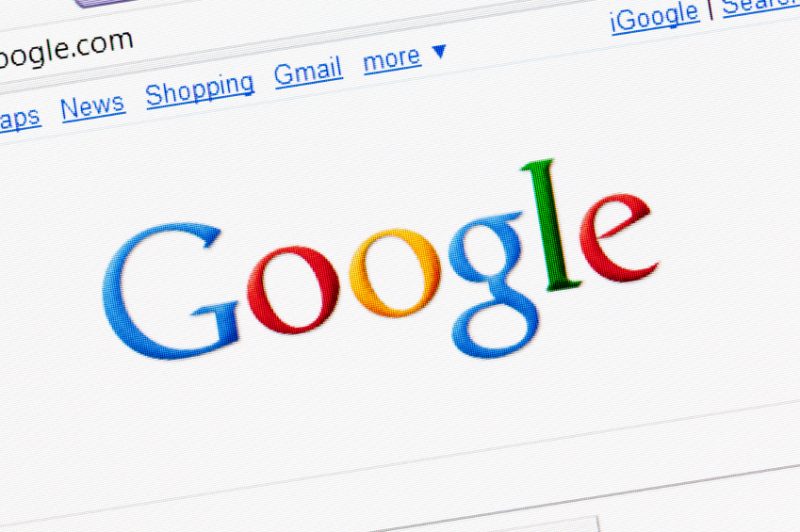
 Dan Shefet is the Paris-based attorney who was the first to enforce the principles of the “Right to Be Forgotten” — pursuant to a ruling from the European Court of Justice — before an EU member state and obtained global reach. The law enables citizens in Argentina and Europe to request Google remove links to information, videos or photographs about themselves on the internet so that they cannot be found by search engines.
Dan Shefet is the Paris-based attorney who was the first to enforce the principles of the “Right to Be Forgotten” — pursuant to a ruling from the European Court of Justice — before an EU member state and obtained global reach. The law enables citizens in Argentina and Europe to request Google remove links to information, videos or photographs about themselves on the internet so that they cannot be found by search engines.
Sought-after by world leaders, citizens and media platforms, Dan is a widely-watched influencer on whether the Right to Be Forgotten could come to America. He is a passionate privacy advocate who believes tech giants like Google and Facebook have far too much power.
Since we first interviewed Dan, we have closely followed his career. When NPR tech reporter Aarti Shahani produced a story about him last spring, we found these passages from her interview especially notable:
“Now he is attracting attention in the United States, and his timing is impeccable. The growing backlash against tech giants globally and in this country — where fake news, election interference by Russia and recent revelations of the Cambridge Analytica breach — have led to demands for greater scrutiny of Facebook, Twitter and Google.
In Germany, he has advised Angela Merkel’s administration on a hate speech law that she pushed through, which makes tech companies subject to fines of about $60 million if they break it. He is advising senators in France on a similar law being drafted there.
Since his victory against Google, Shefet is also hearing more from Americans. A state assemblyman wants advice on a bill that gives New Yorkers a right to privacy like what Europeans have. Consumer groups want expert testimony. And individuals reach out, too.”
We reached out to Dan to ask how his campaign for bringing the Right to be Forgotten to America is progressing and how Americans can join his crusade.
Since our last interview, you have made several trips to the U.S. to present your case at the invitation of many organizations as well as government officials, from Harvard to the American Bar Association and members of the Senate. What does that signify in terms of support for the Right to Be Forgotten here?
The core principal of instilling accountability on the internet is beginning to catch on in the U.S. People are starting to think critically about the accuracy of online information with the emergence of “Fake News,” which could be considered a different aspect of reputational attacks. They might justifiably ask, “If Fake News should be policed, then why not slander and attacks against normal people? Shouldn’t there be equality before the law?”
The time is now to challenge U.S. policymakers to think critically about what kind of content should and should not be protected forms of speech, and where to draw the line in the internet age of third-party intermediaries: website hosting services.
Free speech laws in the U.S. are the biggest obstacle to passing a “Right to be Forgotten” law here. How do you envision such a right can become integrated into our legal system?
In Europe, our system provides for relative immunity under the 2000 e-commerce directive, while enforcing responsible parties in the case of failure to respect requests to remove content. In my opinion, this standard should be applied on a global level. This would enable us — the users and would-be victims of online attacks on reputation — to vindicate our rights, instilling a sense of accountability in the intermediary web providers. This will have a salutary effect on net discourse around online speech and abuse.
It would be a boon to society if internet intermediaries were asked to justify why they may not be accountable for some harm done by means of their hosting infrastructure, on a case-by-case basis, rather than the present principle: as it stands now, the burden of proof is on the victim to demonstrate the harm done. Lack of accountability leads to abuse. No one should be above the law.
This does not mean that intermediaries should be required to actively and vigilantly monitor content around-the-clock, even insofar as machine learning may make that process less cumbersome. It would simply ask of them to demonstrate good-faith accountability when an issue is brought to their attention. A first step would be to address existing U.S. communications law by creating an obligation to comply with take-down orders and to shift the burden of proof away from cyber victims.
In today’s legal practice, the Communications Decency Act (CDA), Section 230, frees website owners from liability on what other users contribute to their platforms. What are your views on that law, which was passed in 1996?
That is the law that needs to be overturned or amended for there to be something approximating a “Right to be Forgotten” in the U.S. Unfortunately, I see recent invocations of section 230c as a development in the wrong direction — the latest Yelp verdict being a case-in-point.
The CDA needs fixing: by this, I mean it needs to adapt to current circumstances. The net is an extremely dynamic entity, and during the 22 years the law has been in effect things have changed substantially when it comes to online intermediaries. It seems anachronistic not to take these fundamental developments into consideration, as if we were applying laws designed to regulate horse carriages to modern day traffic violations.
What do you consider the fundamental changes in online affairs over the past two decades that should inform the legal culpability of intermediaries?
Once upon a time, giving intermediaries absolute immunity in what is published on their sites may have been the right thing to do, but that does not mean it still is today. Those intermediaries are now not only vertically integrated with content providers, thereby acting increasingly like media publishers and editors; in those roles, the CDA would not shield them from prosecution. But because they are legally considered as intermediaries, they are immune to challenge. The consequences of these changes in online publication practice do not legitimize such special protection in the slightest.
We have even seen cases where material support to terrorists has not prevailed against the Communications Decency Act. i.e. the theory that these companies by lending their infrastructure and thereby “material support” to terrorists and similar organizations should be held responsible.
What are the biggest obstacles to establishing a U.S. version of the Right to be Forgotten? Do you believe they can be overcome?
The protection of intermediaries through Section 230 is a substantial hurdle for this kind of Right. The Communications Decency Act seems to have acquired almost sacrosanct First Amendment reverence, connoting a sort of quasi-constitutional value. We have even seen cases where terrorists have taken material support in the form of online infrastructure from intermediaries, and those sites remain unaccountable.
It is noteworthy that Mark Zuckerberg established a precedent by stating Facebook is responsible for the content it publishes at a recent Senate hearing. But so far, tech titans at large have been very clever in maintaining some sort of voluntary model for accountability, thereby seeking to avoid any breach in absolute immunity.
You established AAID, the Association for Accountability and Internet Democracy, to educate Europeans and other world citizens about your campaign. Do you plan on founding a chapter here?
AAID is at-present actively looking for partners with whom to establish a local chapter in the U.S. We believe that forging this connection is a necessary next-step, now that we have already done substantial work with policy makers in Asia and South America.
How can Americans become involved in supporting in your campaign?
I would call upon all those who may be interested in helping establish an AAID chapter in the U.S. to contact us. You can donate to the cause through PayPal or register as an AAID member by clicking this link.
Visit the Association for Accountability and Internet Democracy: http://eaaid.eu
This interview was edited by Rachel F. Bloom, a freelance writer.
Related article: Free Speech, Internet Laws and the “Right to be Forgotten”


